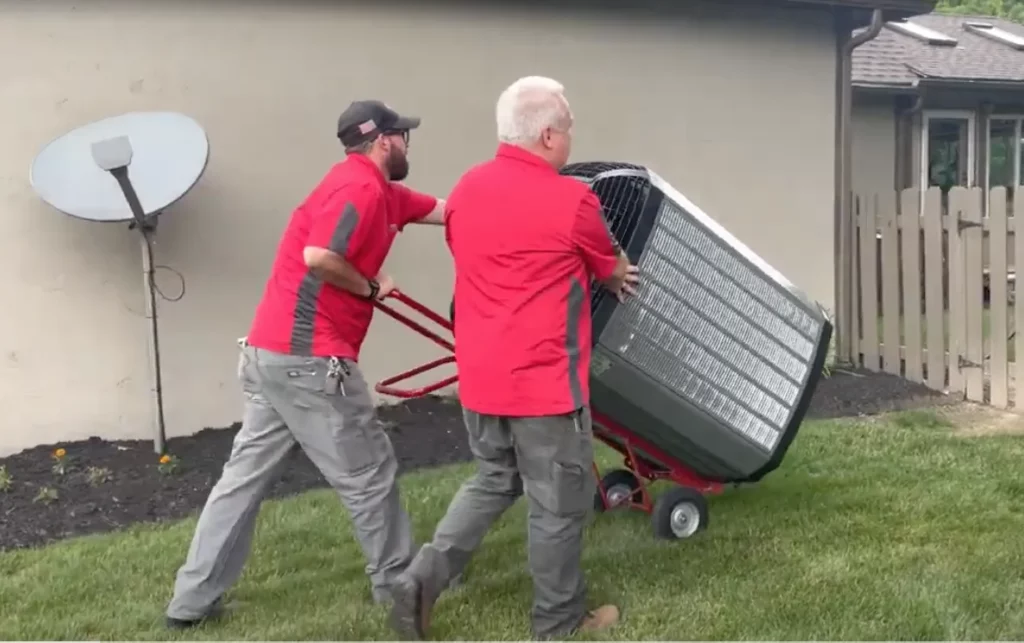Summer heat can be unbearable, and a reliable air conditioning unit is key to staying cool and comfortable. If you’re in the market for a new air conditioning unit, you’ll want to take the time to find the right one to suit your needs and budget. In this article, we’ll cover some factors to consider when purchasing a new AC unit, so you can make an informed choice.
Factors to Consider When Purchasing a New AC Unit
Summer is the time for beach days, BBQs, and staying cool indoors with the AC on full blast. It can be hard to enjoy your summer if your air conditioner isn’t working properly, forcing you to battle high temperatures. You might not know where to start if you’re in the market for a new air conditioning system. Here are some tips:
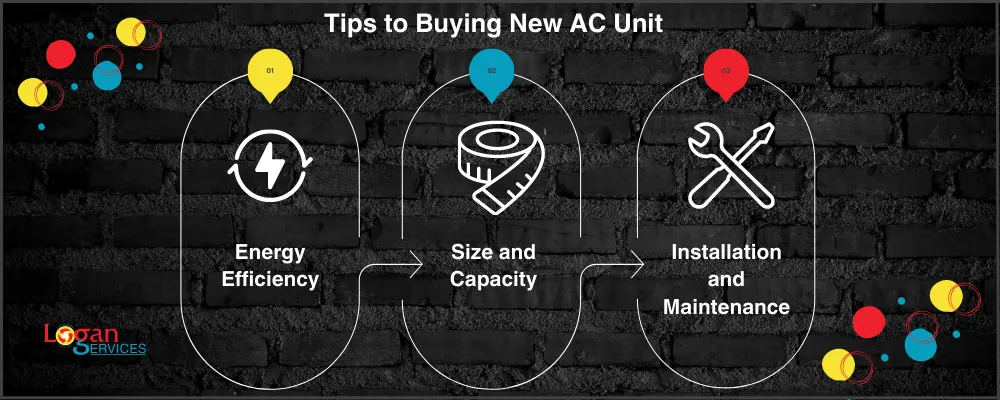
Energy Efficiency
An energy-efficient model is one of the first factors to consider when purchasing a new AC unit. Not only does it reduce your carbon footprint, but it also saves you money on your energy bill. Look for the Energy Star label, which signifies that the unit meets energy efficiency guidelines set by the United States Environmental Protection Agency (EPA).
Another feature to consider is the SEER/SEER2 rating, which measures an air conditioner’s cooling output compared to the amount of energy it uses. The higher the SEER rating, the more efficient the unit is.
Size and Capacity
Choosing the right size and capacity of the air conditioning system is critical in ensuring maximum efficiency and comfort. The size of the unit should be based on a number of things, including the square footage of the space it will be cooling. Installing a unit that is too small for a space will have to work harder to cool the room, causing it to operate inefficiently and increasing energy bills. On the other hand, installing a unit that is too large for the space may result in excess humidity and a shorter lifespan of the system.

You need to conduct a load calculation to determine the correct size unit for your home. Factors that affect this calculation include the climate, the home’s size, the room’s ceiling height, and the number of occupants in the house. Hiring a professional HVAC contractor to conduct the calculation is recommended to ensure the correct size and capacity of the unit is installed.
Installation and Maintenance
The installation and maintenance of the air conditioning system are equally important factors to consider when purchasing a new unit. Installing the system correctly will ensure that it operates at maximum efficiency. A common mistake people make is choosing a company to replace their HVAC system solely based on the cheapest price. It’s important to remember, that you often get what you pay for, so make sure you select and installing company with a great reputation to ensure that you make the most of your investment. Failing to do so could lead to an improperly installed system that is inefficient and dangerous.
It is best to hire a professional HVAC contractor with experience installing air conditioning systems. They will have the proper tools and skills to ensure a safe and efficient installation. Routine maintenance of the air conditioning system is also crucial in ensuring maximum efficiency and increasing its lifespan. This includes regularly changing air filters, cleaning the unit, and scheduling yearly maintenance with a professional technician.
By considering energy efficiency, size and capacity, and installation and maintenance, you can ensure that your new air conditioning system will keep you cool and comfortable during those hot summer months.
Technology Explained: Ductless Split AC Units
Ductless split units, also known as ductless mini-split systems, offer zonal cooling and are a popular alternative to central air conditioning systems. These units are composed of an outdoor compressor and one or more indoor air-handling units that are compact and non-invasive to install, as they do not require ductwork. Let’s take a closer look at the technology behind ductless split units.
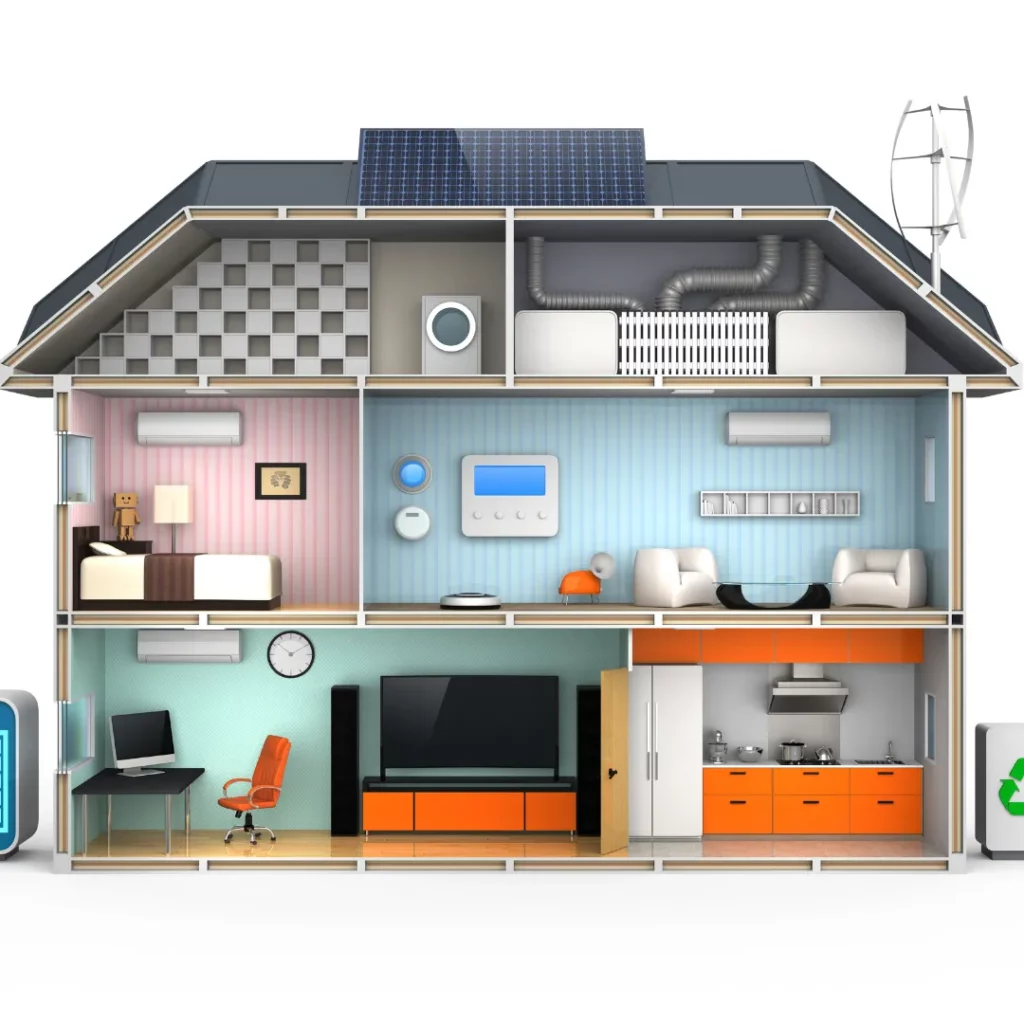
Zone Specifics
The zoning aspect of ductless split units is one of its biggest advantages. Each indoor unit can heat or cool a specific zone in the house, ensuring that only occupied areas are being cooled. This is in contrast to central air conditioners that cool the entire house, even unoccupied rooms, resulting in higher energy bills.
Ductless split units are also beneficial for homes with unique layouts or those without ductwork. The indoor air-handling unit is mounted on the wall and connected to the outdoor compressor through a small hole, making installation less intrusive.
Trane AC Units
When it comes to buying a new AC unit, there are a lot of options to choose from. One brand that stands out in the market is Trane, known for producing high-quality air conditioning systems. Trane AC units are considered reliable, energy-efficient, and durable, making them a great investment for homeowners looking for an upgrade.
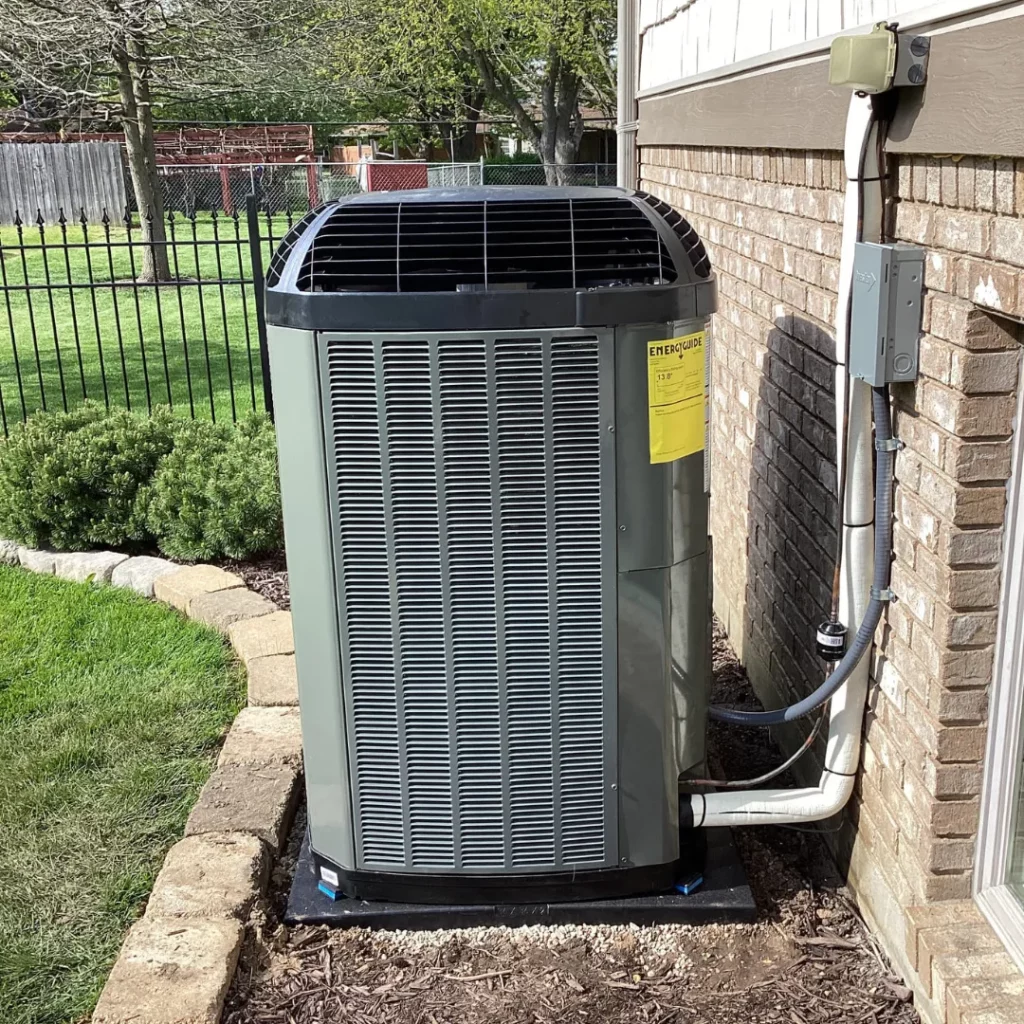
Central Air Conditioning
Central air conditioning is the most popular type of air conditioning system used in homes and buildings in the United States. It works by distributing cool air through a network of ducts and vents installed throughout the house or building. A central air conditioner consists of an outdoor unit, which houses the compressor and condenser, and an indoor unit which houses the evaporator coil and air handler.
If you’re planning to install a central air conditioning system in your home, there are various factors to consider, such as the size and square footage of the area you want to cool and the load calculation of your house. It’s essential to consult with a professional to get the right size air conditioner for your home. A central air conditioner that is too small or too large for your home can cause energy waste, efficiency issues, and higher utility bills.
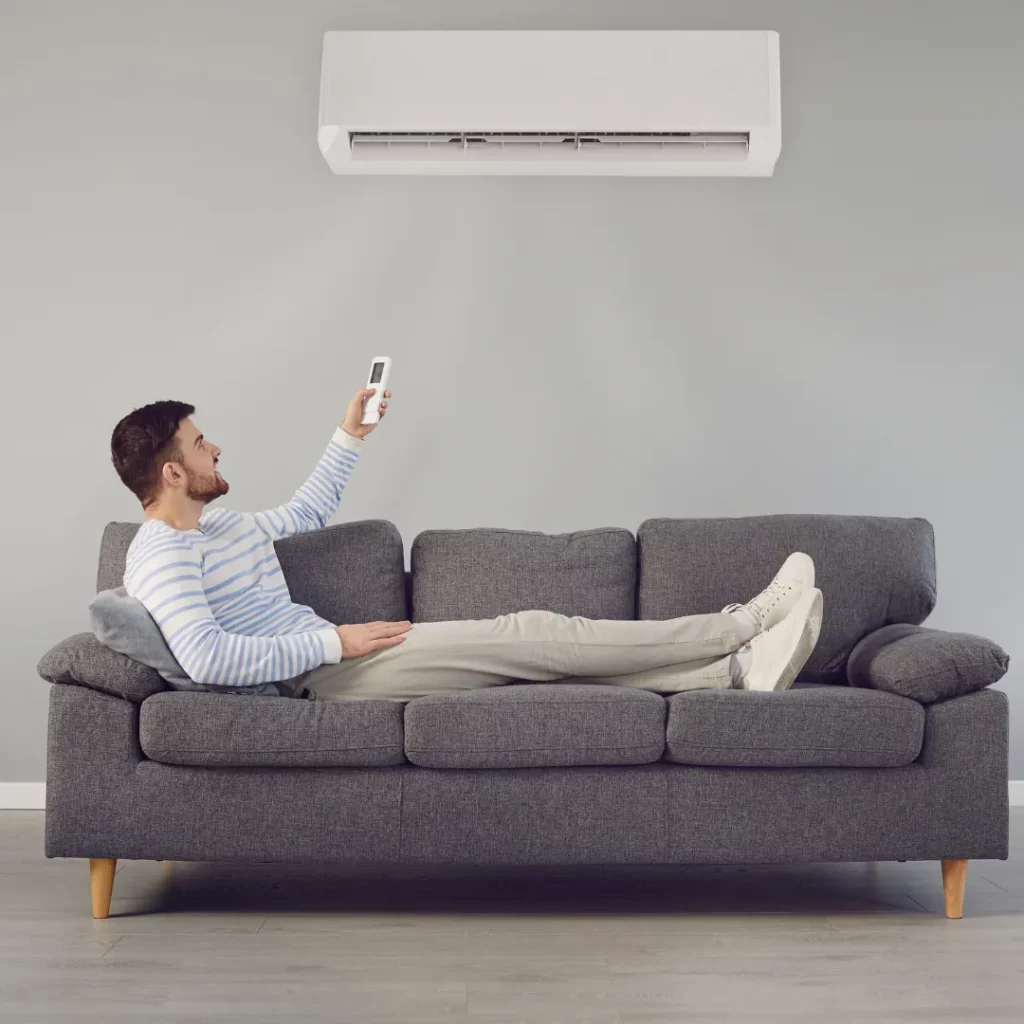
Ductless Mini Split Systems
Ductless mini-split systems are an alternative to central air conditioning systems that do not require ductwork. They consist of an indoor unit mounted on the wall or ceiling and an outdoor unit that houses the compressor. Ductless mini-split systems provide zonal cooling, which means you can control the temperature of each room or zone separately.
Ductless mini-split systems are ideal for homes that do not have existing ductwork, or for homeowners looking for a more energy-efficient option. They are great for providing additional heating/cooling to those hard to condition spaces, such as a sun room or upstairs bedroom. They use less energy to cool your home compared to central air conditioners and offer better temperature control.
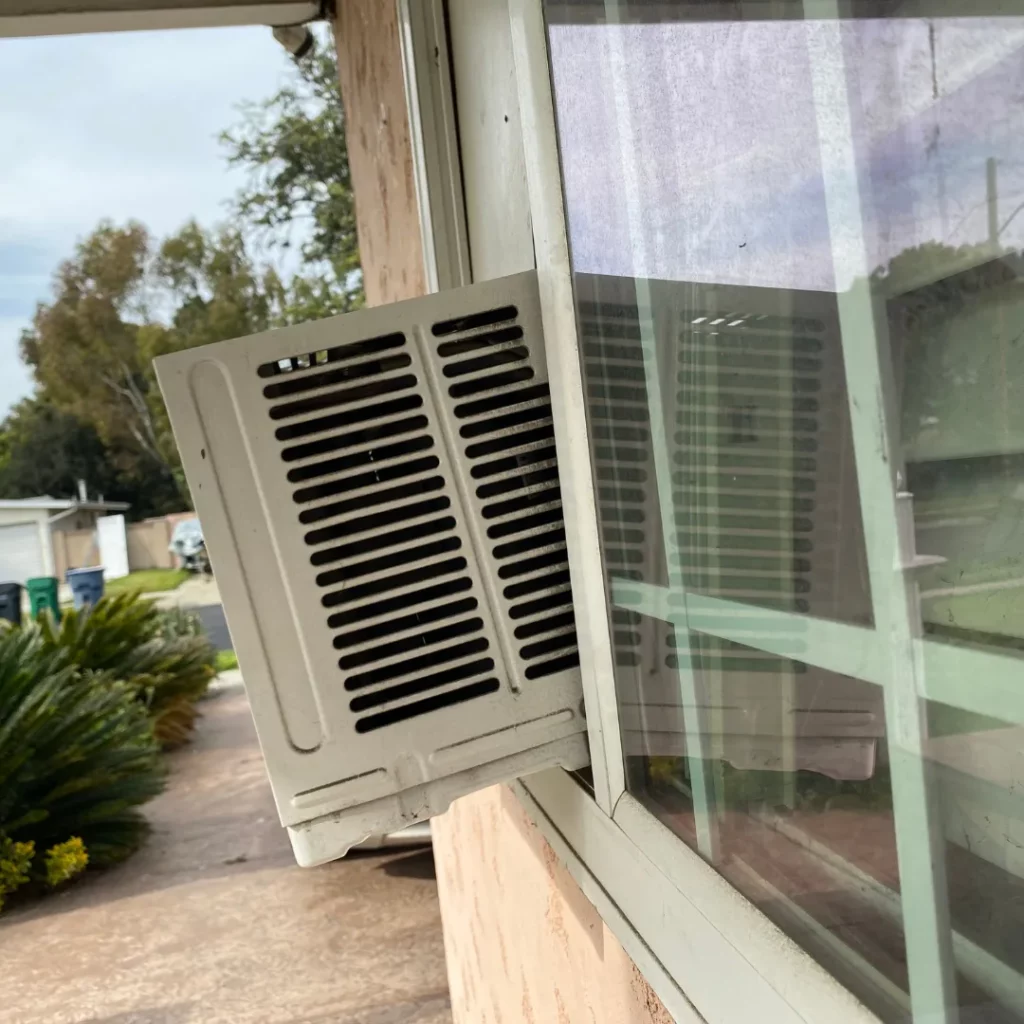
Window Units
Window air conditioners are a popular option among homeowners who want a portable and inexpensive cooling solution. They are designed to fit in a standard window frame and consist of a single unit that houses the evaporator, condenser, and compressor. Window units are best for cooling small to medium-sized rooms and can provide cooling for up to 350 square feet.
When buying a window air conditioner, it’s essential to consider the square footage of the room you want to cool and choose the right size unit. A window unit that is too small will not cool the room efficiently, while a unit that is too large will consume more energy than necessary. It’s also important to read product reviews and compare features to find the best option for your needs.
In conclusion, when buying a new AC unit, it’s important to consider factors like energy efficiency, size, and customer service. Trane AC units are known for their reliability and durability, and they offer various options that can cater to different customer needs. Whether you choose a central air conditioning system, ductless mini-split system, or window unit, it’s important to choose the right size and maintain regular routine maintenance to ensure optimal energy efficiency and performance.
FAQs Buying a New Air Conditioning Unit
What are the different types of air conditioning units available?
There are several types of air conditioning units available:
- Central air conditioning
- Ductless split units
- Window air conditioners
- Portable air conditioners
- Hybrid units
- Geothermal units
Central air conditioning systems deliver cool air throughout your home via ductwork. Ductless split units are similar to central air conditioning units in that they have both indoor and outdoor components, but they don’t require ducts – instead, they use refrigerant lines to transfer cool air. Window air conditioners and portable air conditioners are designed to cool a single room or a small area. Hybrid units use both electricity and fossil fuels to power the unit, making them more efficient than traditional air conditioning units. Geothermal units use the earth’s natural temperature to heat or cool your home.
How do I determine what size air conditioner to buy?
The size of your air conditioner depends on several factors, including the square footage of your home, the number of rooms you need to cool, and the climate zone where you live. A professional HVAC technician can perform a load calculation to determine the correct size air conditioner for your home.
If you’re replacing an existing air conditioning unit, it’s likely that you’ll go with a unit with the same cooling capacity as your old unit, but having a load calculation done to ensure that the system was properly sized is still important. Choosing a unit that is too small for your home will cause it to work harder and wear out faster, while a unit that is too large will waste energy and not properly dehumidify your home.
What is the most energy-efficient type of air conditioning unit?
The most energy-efficient type of air conditioning unit is one that has earned the Energy Star label. Energy Star is a government-backed program that certifies products that meet strict energy efficiency guidelines. When shopping for a new air conditioning unit, look for the Energy Star label to help you save energy and money on your utility bills. It’s also important to consider an ac with the highest SEER/SEER2 rating, as this will be the most efficient replacement option.
Do I need routine maintenance on my air conditioning unit?
Yes, routine maintenance is important to keep your air conditioning unit running efficiently and to prevent breakdowns. Some common maintenance tasks include changing air filters, cleaning the coils, and checking the refrigerant levels. Regular maintenance can also help extend the lifespan of your air conditioning unit.
What is the best way to purchase a new air conditioning unit?
When purchasing a new air conditioning unit, it’s a good idea to do your research ahead of time to determine what type of unit you need and the features you want. Depending on the application, you can purchase window air conditioning units from big box stores or online retailers. When it comes to purchasing a central air conditioner or ductless mini split, you’ll want to do so through an HVAC contractor that can also perform that installation of the system.
It’s important to choose a reputable company with a good track record of customer service. Look for reviews online and ask for recommendations from friends and family. Some companies may also offer coupons or discounts to help you save money on your purchase.
What is zonal cooling?
Zonal cooling is a strategy used to cool different areas of a home separately. This can be achieved through the use of ductless split units, which can be installed in individual rooms or zones. Zonal cooling allows you to set different temperatures for different areas of your home, reducing energy waste and improving comfort.

